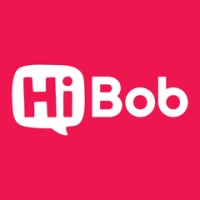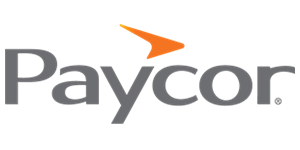- Best for startups and small businesses: Gusto
- Best for high-tech organizations: Rippling
- Best for growing businesses: Paychex
- Best cloud-based solution: Justworks
- Best for global payroll: Papaya
- Best for companies that use QuickBooks for accounting: QuickBooks Payroll
- Best offering HR and compliance resources: Square
The human resources and payroll software market is growing and is expected to have a market size of $15.43 billion by the end of 2030, according to Market Research Future. These solutions are designed to automate tasks to streamline HR processes and offer better visibility into different HR functions.
With so many options in the market, it can take time to pick up. To get you started, we’ve highlighted the top six HR and payroll software.
Featured Partners
Feature comparison table
| Unlimited payrolls | Automatic tax filing | Free trial | Mobile app | Free phone support | |
|---|---|---|---|---|---|
| Gusto | Yes | Yes | No* | Yes | No |
| Rippling | Yes | Yes | No | Yes | Yes |
| Paychex | Yes | Yes | No | Yes | Yes |
| Justworks | No | Yes | No | Yes | Yes |
| Papaya | Yes | Yes | No | Yes | Yes |
| QuickBooks | Yes | Yes | Yes | Yes | Yes |
| Square | Yes | Yes | No | Yes | Yes |
| *Gusto currently offers a one month free discount on your invoice after you subscribe and run your first payroll. Other terms and conditions apply. | |||||
The top human resources payroll software
HR payroll software blends the most crucial features of payroll-specific software and HR-specific software, streamlining people management for small and midsize businesses and corporations. Since it combines the best tools from both software types, HR payroll software isn’t as comprehensive as either human resource information solutions or human capital management solutions.
Business owners with complex HR needs should read through one of our guides to finding the best HRIS software or HCM solutions instead of continuing with this page. But if you’re looking for software that lets you pay employees, manage benefits and tackle other basic HR tasks, human resource payroll software could be a good fit for your business.
Gusto: Best for startups and small businesses
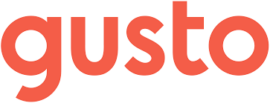
Gusto is one of the top HR payroll software offering a variety of features, including benefits management, full-service payroll, workers’ compensation insurance and time tracking. It is ideal for startups and organizations with a small number of employees.
Gusto can be used for managing payroll and HR functions for employees and contractors, including employee benefits such as retirement and health. However, the pricing structure gets expensive if you have a large number of employees.
Additionally, while each Gusto plan includes some HR-specific features like benefits administration, only Gusto’s most expensive plan, Gusto Premium, is a fully featured HR solution. Gusto Premium includes access to a comprehensive HR resource library, compliance alerts and HR expert consultations. You can add Gusto HR as a separate service if you choose Gusto Plus, Gusto’s mid-tier plan.
Top features
- Full-service payroll: Gusto offers all the tools you need to manage payroll, including automated features.
- Hiring and onboarding: Hiring and onboarding tools offered by Gusto include onboarding checklists, online storage of onboarding documents and the ability to send offer letters.
- Employee finance tools: One of the unique features Gusto offers is its Gusto Wallet, through which employees can track their spending and use financial tools to help them save. Gusto also offers an employee debit card.
Pros
- Compliance guidance and automatic tax filing.
- Easy to set up payroll.
- Transparent pricing structure.
- International contractor payroll.
Cons
- Expensive at scale.
- Limited HR features.
Pricing
- Simple: $40 per month plus $6 per month per person.
- Plus: $80 per month plus $12 per month per person.
- Premium: Custom quote.
Rippling: Best for high-tech organizations
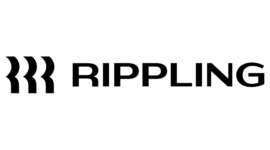
Rippling is a top choice for an all-in-one HR software that is user-friendly yet offers a full range of features. There are no standard subscription plans, which are more expensive than competitors; however, the functionality is outstanding. It is ideal for high-tech organizations that wish to control their operations and processes using a fully integrated platform.
Top features
- One-click payroll: There is no need for any manual entry with the one-click payroll feature offered by Rippling. Using this feature, you can customize the PTO policy, review time off requests and perform other payroll functions without doing any manual entry.
- Global workforce management: Using Rippling, you can manage your global workforce and pay them in their foreign currency.
Pros
- All-in-one HR, payroll and IT software.
- Customizable.
- Extra tools for remote workers.
Cons
- Lack of standard subscription plans.
- Expensive.
Pricing
- Plans start at $8 per user per month plus a mandatory base fee for Rippling’s software platform, Rippling Platform.
Paychex: Best for growing businesses

Paychex offers HR and payroll software for businesses of all sizes. The scalability provided by Paychex makes it ideal for growing businesses. It includes all the basic features you expect from a top HR payroll software. One of its standout features is its business insurance management tools. There is even a Paychex Essentials version optimized for small businesses that need a simple payroll software. Unfortunately, the user interface isn’t the best, and it has a bit of a learning curve.
Top features
- Employee self-service: This is one of the best features of Paychex. This tool allows employees to complete their new hire paperwork, change personal information, view payroll data, request time off, fill out tax forms and more.
- Reporting: The workforce analytics offered by Paychex includes over 160 different types of reports, including tax deposit notices and payroll journals.
Pros
- Outstanding scalability.
- Free training webinars.
Cons
- Clunky user interface.
- Steep learning curve.
Pricing
- Paychex Flex Essentials: $39 per month plus $5 per month per employee.
- Paychex Flex Select: Custom quote.
- Paychex Flex Pro: Custom quote.
Justworks: Best cloud-based solution
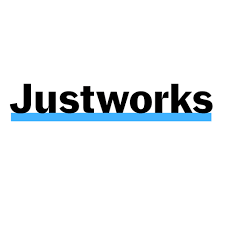
Justworks is a cloud-based human resources information system offering a plethora of features, including staffing, payroll, compliance support, health enrollment and benefits. As it is a cloud-based system, Justworks can be accessed from any device that has the internet.
Unlike Gusto and Paychex, Justworks is a professional employer organization. Instead of providing you with software that you use in-house with cloud-based tech support, Justworks becomes a co-employer of your business and tackles many aspects of HR on your behalf.
Top features
- Payroll dashboard: Justworks has a payroll dashboard that offers a high-level view of the entire payroll setup. You can browse individual details for any employee, contractor or vendor.
- Training course library: Justworks has a training course library on different topics, including harassment prevention, inclusion in the modern workplace and compliance.
Pros
- Optimized for cloud.
- Excellent customer service.
- Advanced reporting options with Plus plan.
Cons
- Lack of e-sign functionality.
- Time tracking is a paid add-on.
Pricing
- Basic: $59 per month per employee.
- Plus: $109 per month per employee.
Papaya: Best for global payroll

Papaya offers a suite of solutions to streamline global hiring, payroll and workforce management. Like Justworks, Papaya Global is also a PEO that manages HR for small businesses. Its PEO service extends to international hiring and employee onboarding.
The global features offered by Papaya make it the best payroll and HR software for companies operating in multiple countries. The pricing structure makes Papaya more expensive than most of its competitors.
Top features
- Employer of record: This feature allows for international recruitment and compliance with local employment laws in over 160 countries. In addition, the compliance support offered by Papaya helps file local tax paperwork and make international payments.
Pros
- Supports global HR functions in over 160 countries.
- Strong automation tools.
- Transparent pricing.
Cons
- Initial setup takes time.
- Expensive depending on required services and the number of employees.
Pricing
- Papaya offers multiple global payroll solutions starting at the following price points:
- Global Payroll: Starts at $25/employee/month for businesses with 101+ employees, $20/employee/month with 501+ employees, or $15/employee/month with 1,001+ employees.
- EOR: Starts at $650/employee/month.
- Contractor Payments & Management: Starts at $30/contractor/month.
QuickBooks Payroll: Best for companies that use QuickBooks for accounting
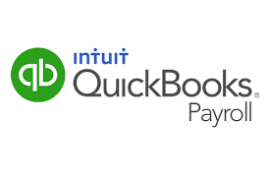
QuickBooks Payroll is ideal for those already using QuickBooks accounting and has less than 150 employees. The same-day or next-day direct deposits are one of the standout features of QuickBooks Payroll. It also offers automatic tax filing, geofencing tools for employee attendance and an excellent mobile app.
QuickBooks Payroll is not a thorough HR solution, however. It has many more payroll features than HR features. As with Gusto, QuickBooks’ HR support is only accessible to businesses with its mid-tier plan and higher.
Top features
- Automatic payroll: You can automatically run payroll for salaried and hourly workers through direct deposit.
- QuickBooks Integrations: This software automatically syncs with accounting records from QuickBooks Online. This means you won’t have to manually export payroll information.
Pros
- Seamless integration with QuickBooks Accounting.
- Tax penalty protection with the Elite plan.
Cons
- Additional filing fees.
- Limited integrations.
Pricing
- Core: $50 per month plus $6 per employee per month.
- Premium: $85 per month plus $9 per employee per month.
- Elite: $130 per month plus $11 per employee per month.
Square: Best offering HR and compliance resources

Square provides a variety of staff management, HR and payroll solutions that help simplify payroll, easily communicate and manage teams. Square Payroll can help businesses stay up to date on all the latest HR policies, compliances and even provide advice from HR experts.
Users of Square Payroll get notified via email when there is an human resource or compliance law or policy change that may impact the business. Additional HR add-ons include building an employee handbook, unlimited HR advice and pay-as-you-go workers compensation insurance.
Top features
- Instant deposit: Allow team members that use Cash App to activate the instant deposit feature to access pay immediately.
- Square Team App: Employers and employees can clock in, clock out, track their time and view estimated earnings on the go.
- Team scheduling: Create, manage and share team schedules.
Pros
- Automation tax filing.
- Users admire the ease of onboarding.
- No annual or long-term commitments.
- Highly intuitive mobile app.
Cons
- No option to label direct deposits.
- Limited integrations.
Pricing
- Contractor-only payroll: $6 per month per person paid.
- Full-service payroll: $35 per month, plus $6 monthly fee per person paid.
How to choose the right human resources payroll software
Implementing a payroll software has many benefits, including better operational efficiency, tax compliance and employee experience. However, when choosing the right HR payroll software, you must consider several factors.
On-premise vs. online
On-premise solutions are housed on internal servers, requiring a substantial investment in license fees, IT staff and hardware. It will also require some maintenance expenses. The advantage of on-premise solutions is that the system operates on an internal network, which can be accessed without an internet connection. It can also provide greater security, control over hardware and low monthly costs.
An online solution, such as cloud-based payroll software, offers greater flexibility in terms of being able to scale up or down. In addition, less investment is required upfront, and that data remains secure on an online server. Other advantages of an online solution include ease of deployment and greater customization.
Integrations
If you already have a tech stack for other business functions, such as accounting and HR, you need to consider whether the payroll software can integrate with your existing ecosystem. If it can’t integrate, you will have to invest in either new software or choose to run a separate system for payroll. This may not be a convenient or efficient way to run payroll and manage employees.
User interface
Every business would want software with an intuitive and simple user interface. However, there is often a tradeoff between simplicity and functionality. HR payroll solutions offering advanced features or more control over HR processes are often more complicated to use and have a steep learning curve. You will need to find the right balance based on your organizational needs.
Needs analysis
In searching for the most suitable HR payroll software, you must be aware of your specific requirements. Your business may prioritize certain features over others. For example, if you have a global workforce, you would appreciate software that offers international payments and tax compliance. Similarly, if you are an enterprise-level organization, you might need certain administration and security controls suited for a larger number of employers.



